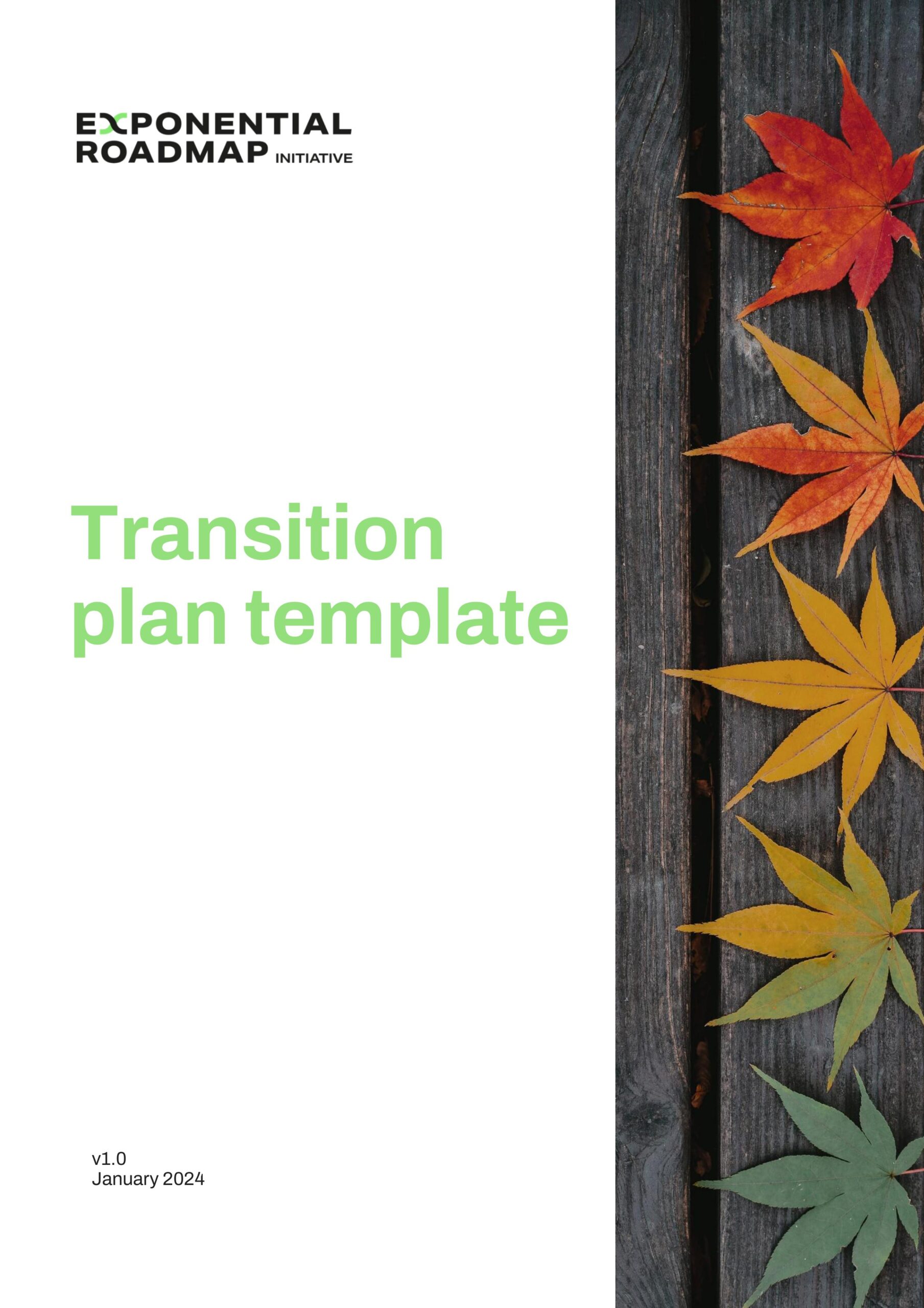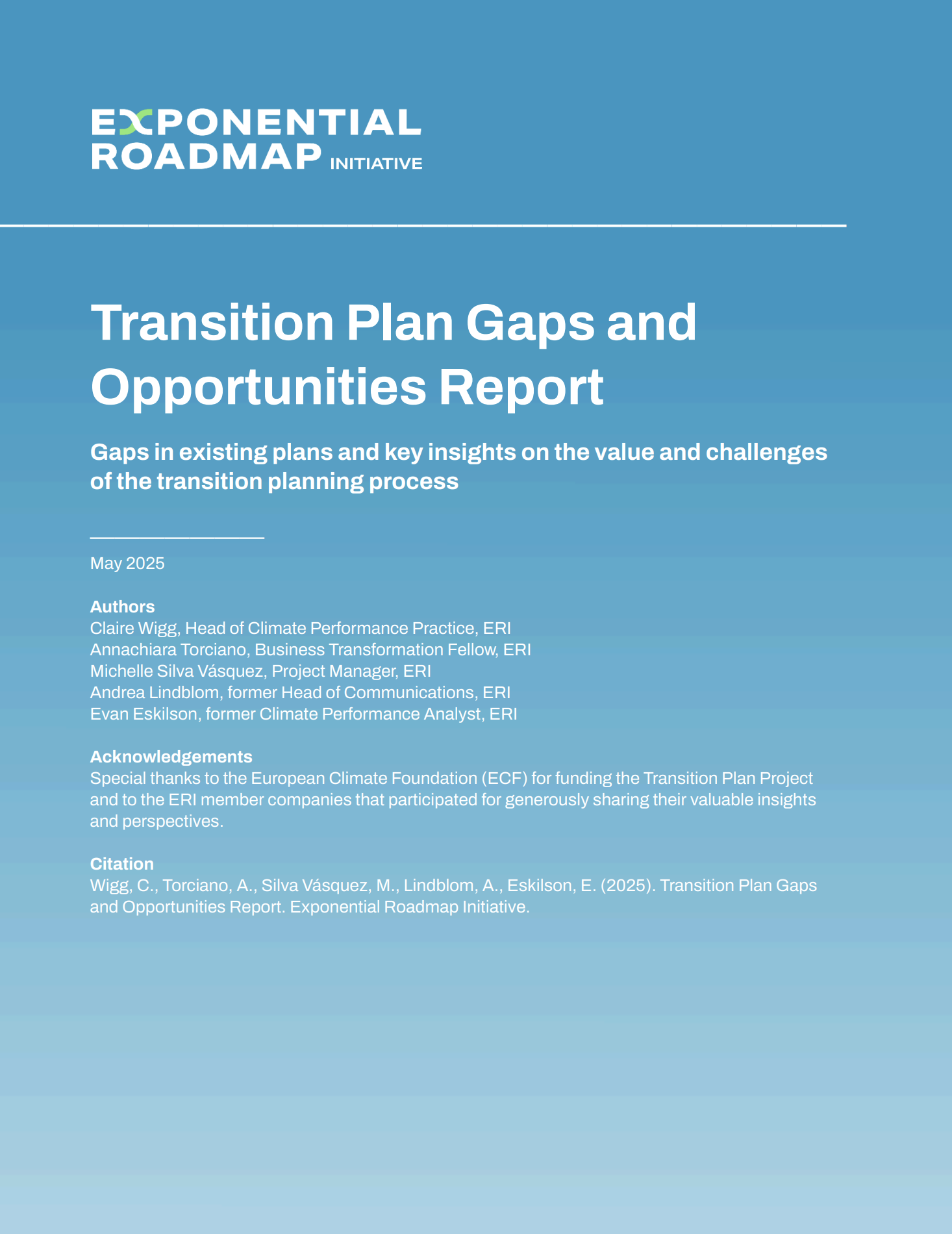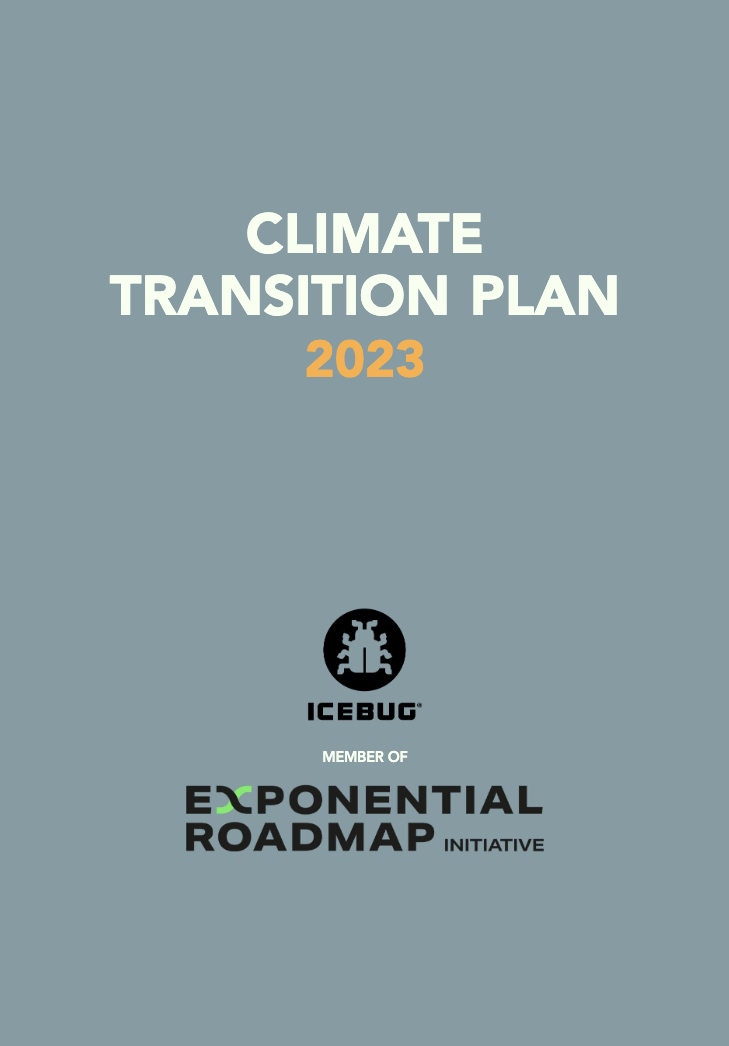Why transition plans matter
Transition plans will soon be required in US and EU legislation. Developing and publishing one is also a requirement of the UN Climate Change High-Level Champions’ Race to Zero campaign, making it essential for participation in associated initiatives.
Other stakeholders will also look to your plans to guide their decision making. These include financial institutions, suppliers as well as media and policymakers.
Additionally, writing a transition plan is also an important step in operationalising your company’s overall climate strategy and will help your company succeed in the long term. A transition plan turns long-term transformational targets into a step-by-step roadmap for creating sustainable change within your company.
How to use Exponential Roadmap Initiative’s guidance
The Exponential Roadmap Initiative’s free-to-use transition plan template is in line with the evolving regulation and guidance from 12 different organisations.
This template has been prepared in such a way that you can directly write into and adjust formatting to reflect your company’s styles.
A complementary mapping offers more detail as to which transition plan elements is required or requested by which initiative or organisation.
Transition Plan Project 2024
To support companies in developing high-quality transition plans, the Exponential Roadmap Initiative carried out a Transition Plan Project in 2024, funded by the European Climate Foundation. The project explored what it takes for businesses to thrive in a net-zero world, assessed the current state of transition plans, and gathered insights from companies leading the way.
This report outlines the project’s activities and findings — including a review of existing transition plans and reflections gathered through interviews and workshops with companies that have published their first plans. It offers a snapshot of what companies are including in their transition plans, and the challenges and opportunities they see in the process.
The outcomes aim to inform best practice and support the creation of credible, ambitious, and opportunity-focused plans that align long-term growth with climate goals.
Transition plans aligned with HLEG recommendations
At COP27, the UN Secretary General’s High Level Expert Group (HLEG) for net zero commitments of non-state entities, issued recommendations for what credible net zero targets of companies, cities and financial institutions would look like. The UN then adapted these recommendations into a checklist for developing HLEG-aligned transition plans. The Exponential Roadmap Initiative supported ten companies in developing such plans and prepared an open-source annotated checklist to facilitate the development of HLEG-aligned transition plans.
Icebug, a Swedish outdoor shoe manufacturer and member of the Exponential Roadmap Initiative, in 2023 published an HLEG-aligned transition plan.
Validating transition plans
An Exponential Roadmap Initiative mapping shows that validating transition plans is likely to have at least two aspects:
- Validating inclusion: ensuring that recommended points have been covered in a transition plan (eg that a given transition plan document contains a date for fossil fuel phase out)
- Validating ambition: ensuring that the planned actions meet ambition thresholds (e.g. that a company’s planned date for phasing out fossil fuels is soon enough)
The United Nations Framework Convention on Climate Change (UNFCCC) has been conducting an independent consultation that is to result in recommendations for a framework to both provide recognition for and accountability on the climate efforts of such actors.
Exponential Roadmap Initiative’s submitted views to this consultation, arguing that
the text in any validation framework describing requirements for transition plans will need to be carefully crafted in order to make sure requirements are understandable to the reader/user and are interpreted in the same way by all stakeholders – both by validators and by companies subject to validation.
Excerpts from our events on transition plans
More resources
- Transition plans as a driver for business transformation towards climate solutions: Exponential Roadmap Initiative’s message at COP28 (blog post)
- COP28: Countries agree to ‘transition away’ from fossil fuels, business key to showing that a rapid phase out is achievable (blog post)
- 5 learnings and 3 calls to action on 1.5°C-aligned transition plans (opinion in Context News)
Latest news
New coalition: the Nordic Climate Advisory Group
Today marks the launch of the Nordic Climate Advisory Group, a coalition founded by the Exponential Roadmap Initiative together with leading climate consultancies in the Nordics.
Urgent for Nations to Press Pause on Deep Seabed Mining
As the race for minerals intensifies, the deep sea—one of Earth’s most mysterious and fragile ecosystems—finds itself in the crosshairs. As governments meet at the International Seabed Authority Assembly this week, the conservation of our planet’s most pristine ecosystem, the deep sea, must be a paramount priority writes Johan Falk (ERI) and Jessica Battle (WWF).
From targets to transition: How NDCs can help align ambition between governments and business
As countries prepare to update their national climate targets ahead of COP30, the Exponential Roadmap Initiative, together with IKEA and Unilever, is working to ensure these targets are actionable and aligned with what businesses need to drive real progress. Listen to a timely conversation from the SB62 gathering in Bonn.









